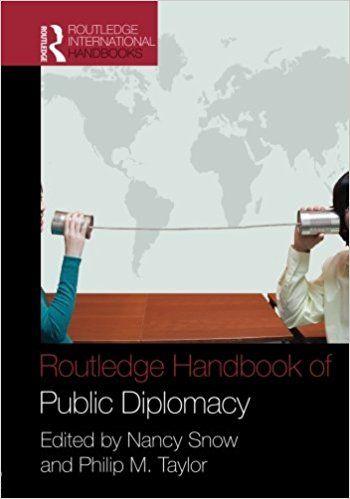Indonesia's Rice Diplomacy: Exploring Export Opportunities For Unique Grains

Table of Contents
The Diversity of Indonesian Rice Varieties
Indonesia boasts a vast array of rice varieties beyond the common white rice. This diversity of Indonesian rice types offers a compelling proposition to international markets seeking specialty grains. These include aromatic varieties like Pandan Wangi, known for its distinctive pandan leaf aroma, and fragrant red rice, prized for both its flavor and nutritional content. Furthermore, nutritious black rice, rich in antioxidants, and unique heirloom varieties, passed down through generations of Indonesian farmers, add to the country's impressive rice portfolio. This wide range of Indonesian rice varieties significantly strengthens the nation's position in the global rice market.
- Pandan Wangi: This aromatic rice variety, cultivated primarily in West Sumatra, is characterized by its distinct pandan leaf fragrance and slightly sweet taste.
- Red Rice: Several varieties of red rice are grown across Indonesia, offering a unique flavor profile and a higher nutritional value compared to white rice, due to its higher antioxidant content.
- Black Rice: Also known as "forbidden rice," black rice is a highly nutritious variety rich in anthocyanins, potent antioxidants linked to various health benefits. It's gaining popularity in health-conscious markets globally.
- Heirloom Varieties: Numerous heirloom rice varieties, representing Indonesia's rich agricultural heritage, are cultivated in various regions, offering unique flavors, textures, and cooking properties. Many of these varieties are organically grown and hold the potential for niche market appeal. These often carry certifications highlighting their unique heritage and sustainable production.
Export Potential and Market Access
The global demand for specialty rice is steadily growing, presenting a significant opportunity for Indonesian rice export. Indonesia can capitalize on this demand by focusing on high-value niche markets. However, navigating export regulations and building strong international partnerships are crucial for success in the Indonesian rice export market.
- Key Export Markets: Asia, particularly East Asia and Southeast Asia, represents a significant market for Indonesian rice. The growing demand for specialty rice in Europe and North America also presents promising export opportunities.
- Logistical Challenges: Efficient storage, reliable transportation, and appropriate packaging are crucial for maintaining the quality of Indonesian rice during export. Investing in modern infrastructure and cold chain logistics will be vital.
- Export Regulations: Understanding and complying with the import regulations of target markets is essential. This includes adhering to food safety standards, phytosanitary requirements, and other relevant certifications (e.g., organic, fair trade).
Government Initiatives and Support
The Indonesian government plays a crucial role in promoting rice exports through various initiatives. These include providing subsidies to farmers, investing in infrastructure improvements, and facilitating trade agreements to open new markets. These initiatives are vital for boosting the competitiveness of Indonesian rice in the global market and supporting the nation's rice diplomacy efforts.
- Subsidies and Financial Aid: The government offers various subsidies and financial assistance programs to support rice farmers and improve productivity.
- Infrastructure Development: Investments in irrigation systems, storage facilities, and transportation networks are crucial for efficient rice production and export.
- Trade Agreements: Participation in regional and international trade agreements facilitates market access and reduces trade barriers for Indonesian rice exporters. The Indonesian government actively works with relevant agencies to establish and maintain these vital trade relationships.
Challenges and Opportunities for Indonesian Rice Exporters
While opportunities abound, Indonesian rice exporters also face several challenges. Competition from other rice-producing countries, the impact of climate change on rice production, and the need to ensure sustainable farming practices are key concerns.
- Global Competition: India, Vietnam, Thailand, and Pakistan are major competitors in the global rice market. Indonesia needs to differentiate itself by focusing on its unique rice varieties and quality.
- Climate Change Impacts: Climate change poses significant threats to rice production, including changing rainfall patterns, increased pest infestations, and higher temperatures. Adaptation strategies and resilient farming practices are crucial.
- Sustainable Farming: Adopting sustainable and environmentally friendly farming practices is crucial for long-term export success. This includes reducing water usage, minimizing pesticide use, and promoting biodiversity.
Conclusion
Indonesia's rice diplomacy presents a significant opportunity for the country to leverage its diverse rice varieties and establish itself as a major player in the global specialty rice market. By addressing the challenges and capitalizing on the support provided by the government, Indonesian rice exporters can unlock substantial growth and contribute to both national economic development and global food security. The potential of Indonesia's unique rice grains is vast, and actively engaging in the global rice market through effective rice diplomacy is key to unlocking this potential. Explore the potential of Indonesia's unique rice grains and discover the lucrative export opportunities within the dynamic global rice market. Learn more about exporting Indonesian rice and contribute to the success of Indonesia's rice diplomacy.

Featured Posts
-
 Public Anger Erupts Town Hall Meetings Become Battlegrounds For Political Debate
Apr 26, 2025
Public Anger Erupts Town Hall Meetings Become Battlegrounds For Political Debate
Apr 26, 2025 -
 Nyt Spelling Bee Answers And Clues March 25th Puzzle 387
Apr 26, 2025
Nyt Spelling Bee Answers And Clues March 25th Puzzle 387
Apr 26, 2025 -
 Are We Normalizing Disaster Betting The Example Of The Los Angeles Wildfires
Apr 26, 2025
Are We Normalizing Disaster Betting The Example Of The Los Angeles Wildfires
Apr 26, 2025 -
 Tariffs And The Looming Advertising Slowdown For Big Tech
Apr 26, 2025
Tariffs And The Looming Advertising Slowdown For Big Tech
Apr 26, 2025 -
 Celebrating April Indie Bookstore Day Dutch Kings Day And The Tumbleweeds Film Fest
Apr 26, 2025
Celebrating April Indie Bookstore Day Dutch Kings Day And The Tumbleweeds Film Fest
Apr 26, 2025
